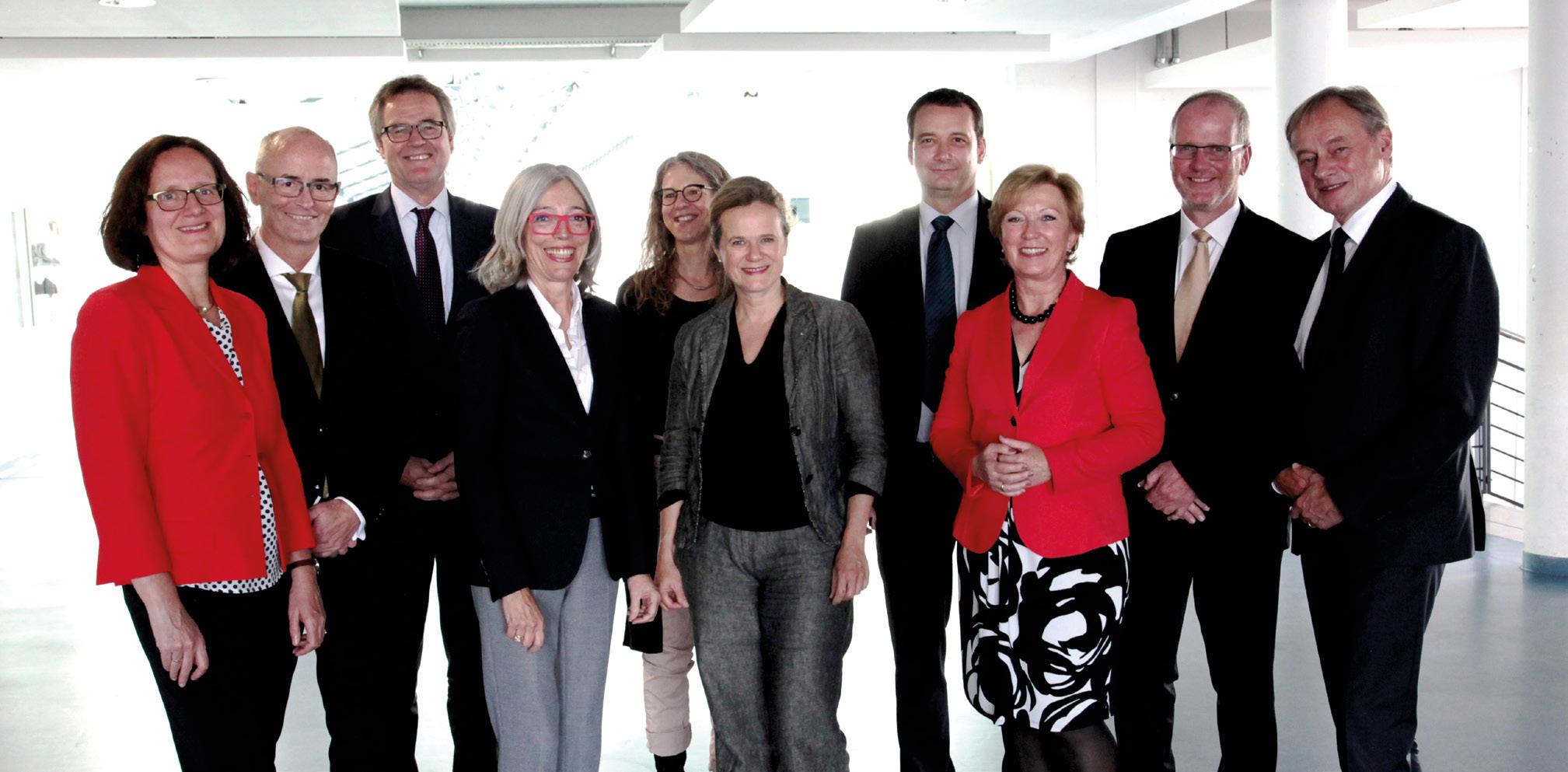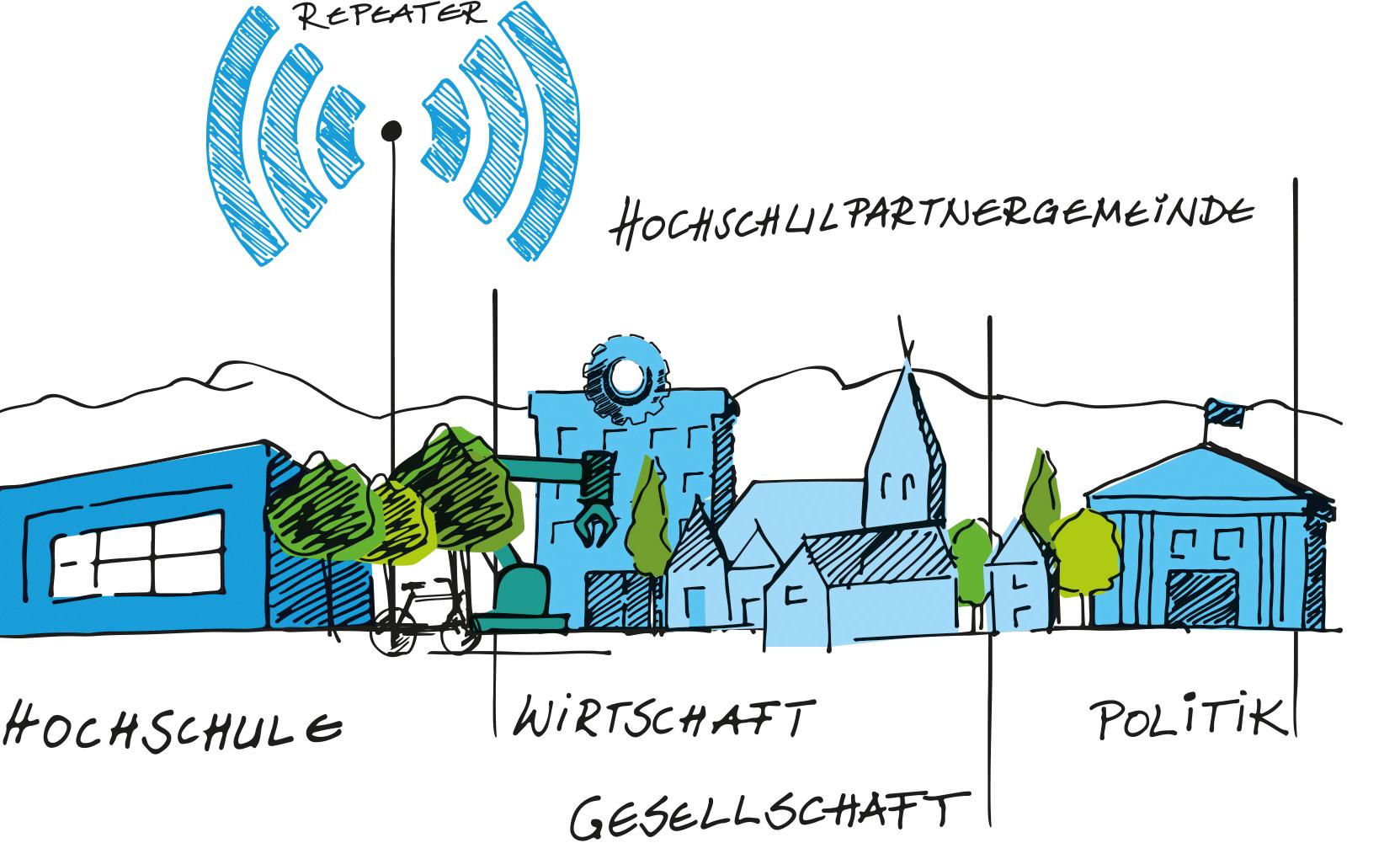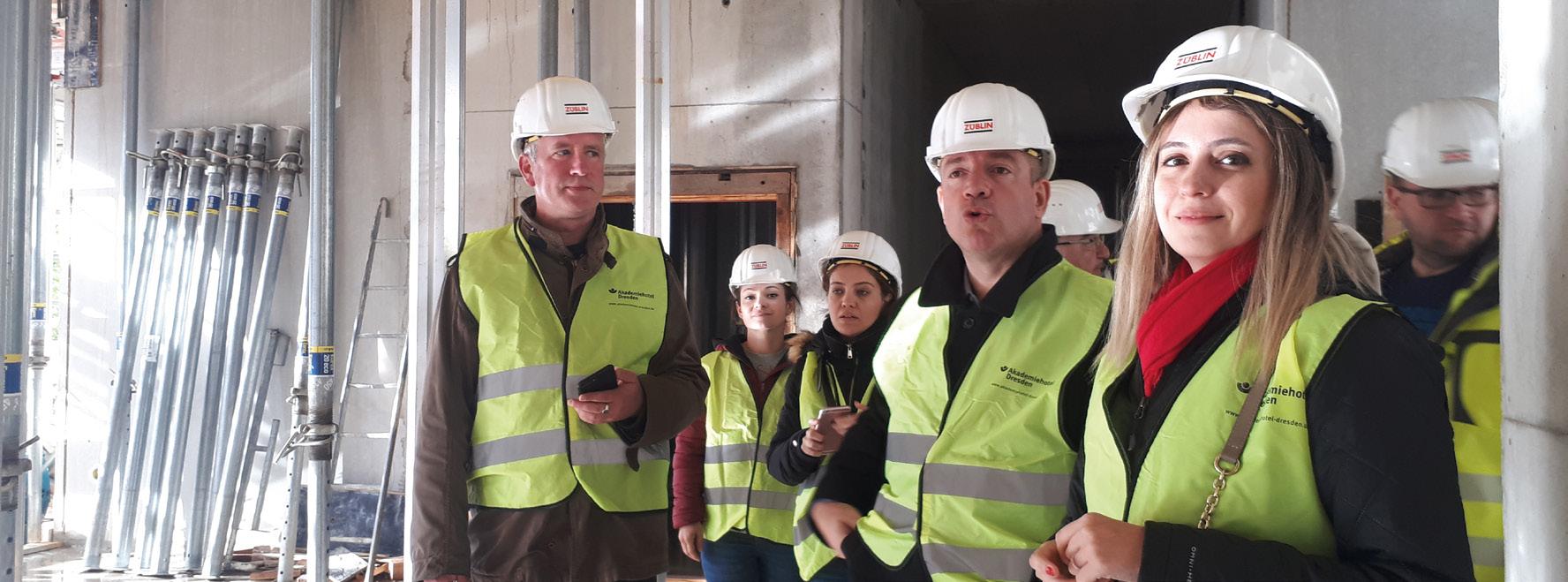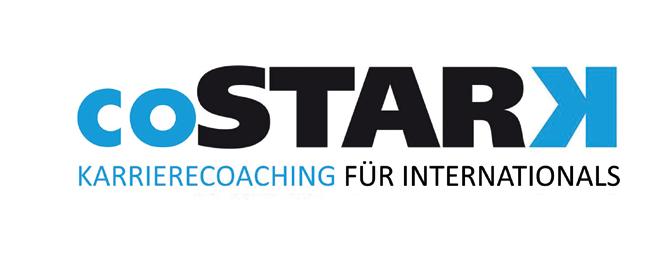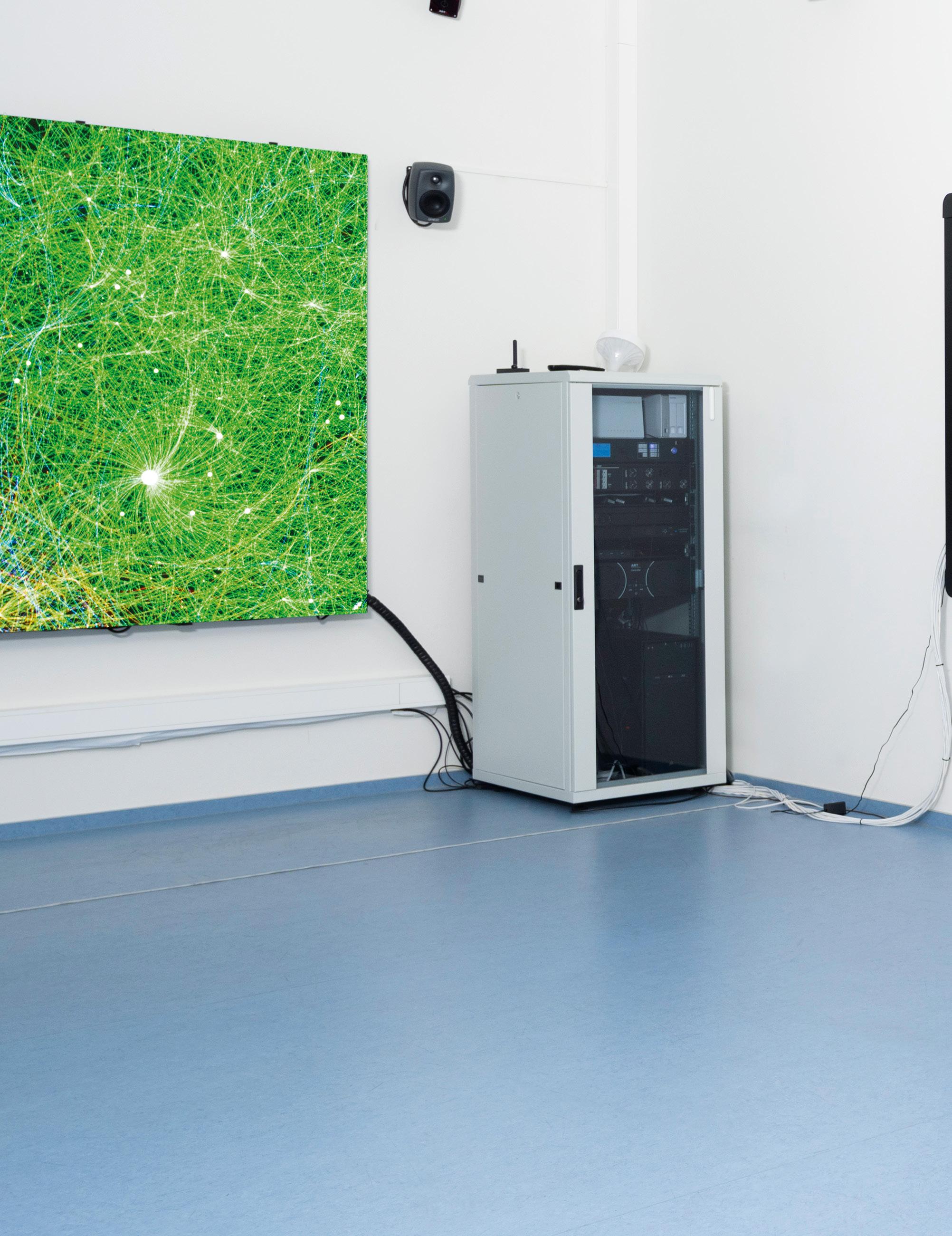
16 minute read
Bundestag, and University President Hartmut Ihne
Must science become more political?
Politics and science follow their own agendas. How can they communicate better with each other in the future? How can coexistence become cooperation? Norbert Röttgen, Member of the German Bundestag and Chair of the Foreign Affairs Committee, and Hartmut Ihne, University President, argue from the perspective of politics and science respectively.
Ɏ
The corona crisis has thrown the entire country into a state of emergency. How do you assess the situation with regard to higher education?
Prof. Dr Hartmut Ihne: The crisis represents an immense challenge for institutes of higher education. First of all, scientists are trying to find answers – medical, economic, socio-political. We are also redefining the social role of science. “Unite behind the science” is the slogan of Fridays for Future. On top of that, we have to keep the university running in the face of great change. In the crisis, we managed a rapid switchover to e-learning opportunities. All of this is a major task for a complex, quasi-parliamentary organisation like a university of applied sciences.
Norbert Röttgen: From a political perspective, one aspect deserves close attention. As early as mid-January, scientific journals were reporting on the possible dimensions of the crisis. In mid-January already! And when this scientific knowledge
was made available to laypersons shortly thereafter, it was largely ignored politically. I think both sides are called to step up. Why does science not raise audible and effective alarm, and when it does, why does politics not succeed in listening attentively to scientists? We urgently need to deal with this.
Ihne: Science and politics each have their own agenda. So far we have not been able to synchronise them productively. How can the gap be bridged? In order to improve communication, we must ask ourselves what each person‘s task is and how the other ticks. Science is a methodical process that tries to be as neutral as possible with regard to interests. Scientists make the truth of their sentences and sentence systems dependent on whether they (a) can be logically deconstructed without contradiction and – in the empirical sciences – whether they (b) can be proven and repeated in experiments. Democratic politics, on the other hand, makes the truth of its propositions dependent on whether they find majority approval. This means that my political idea is ‘ineffective’ as long as I cannot get a parliamentary majority. So there are different theories of truth in both worlds. In democratic politics the majority principle, in science the principle of logic and verifiability through experiment. This is already a huge epistemological, i.e. fundamental, difference.
Röttgen: This is true, but I feel that the problem goes deeper. There is a sense of self-sufficiency on both sides that cannot solely be explained by the different nature of the respective worlds. In the current case of the corona pandemic, a scientist who empirically discovers the truth, then closes the case and does not sound the alarm early can only be explained by self-sufficiency or complacency. If this mere coexistence of politics and science can already be observed in obvious disaster scenarios, then I ask myself what the costs of this communication breakdown are in other, less urgent cases.
Ɏ
But scientists are currently very active in the debate and policymakers are acting on the basis of scientific evidence. Isn‘t the hour of science at hand?
Röttgen: The hour of science is at hand in forward-looking advice, education and, if necessary, warning. Science must take social responsibility before the crisis. A banal comparison – the hour of the car mechanic doesn’t just strike when the car breaks down but before the journey begins. In this respect it is clear. Now that the catastrophe is here, we are experiencing the public role of scientists. By the way, I’m observing a trend in this case that we must counteract. Politics must not be handed over to science. We must prevent hiding democratic responsibility behind virologists and biologists. This means that even during a disaster, scientific knowledge should not replace democratic responsibility and decision-making competence. That is and remains the task of politics.
Ihne: What does uniting behind ‘science’ actually mean? At the beginning of the corona pandemic, we could observe what a one-sided and thus possibly problematic direction this could take.
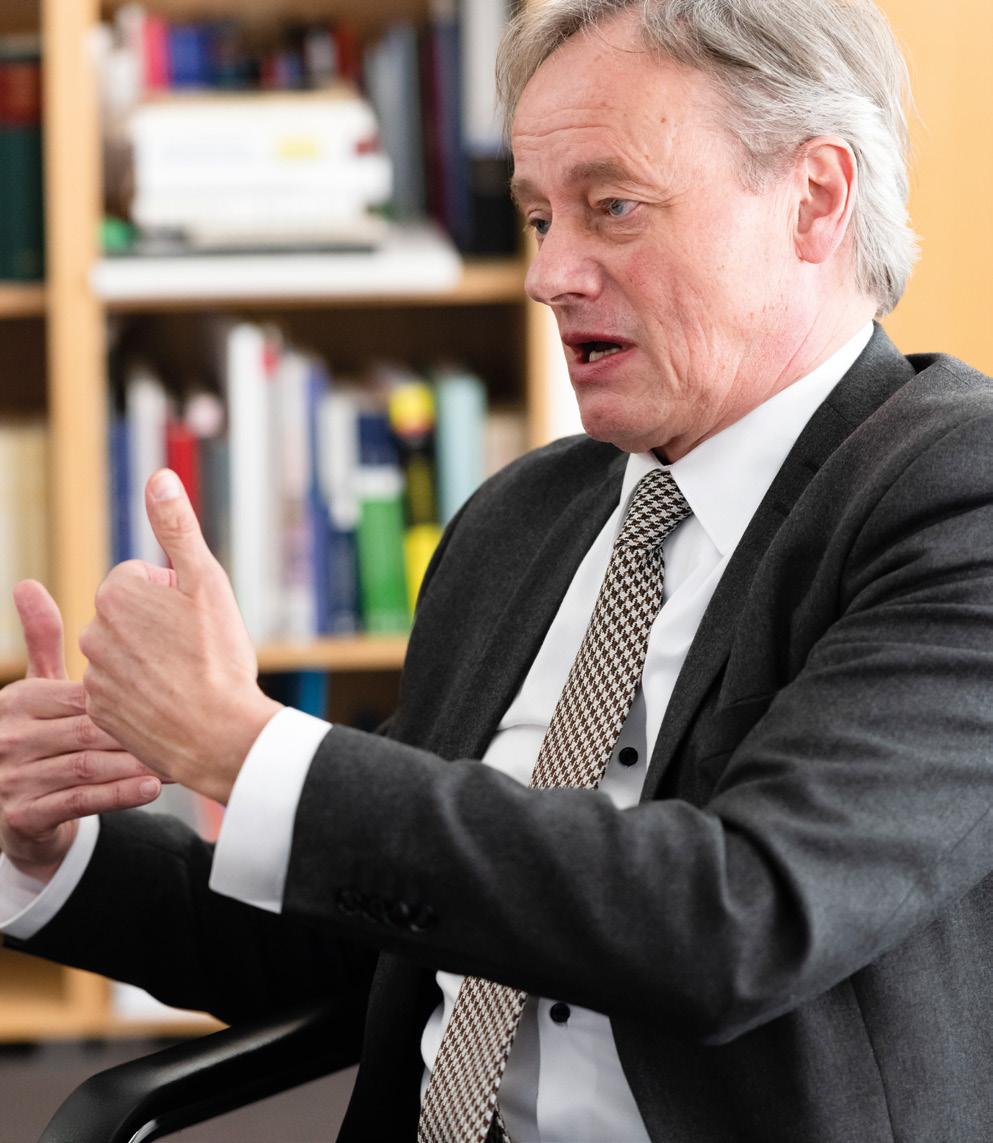
Because the problem was initially perceived as a health problem, the virologists were heard. But science also includes economists, psychologists, computer scientists, social scientists and many others. Each discipline contributes its perspective to the overall picture. How much collateral damage can I allow through a lockdown? Where and when do I have to gradually reopen the country before social and economic structures are so broken that a take-off is no longer possible? At the latest with the lockdown, it became clear that not only medical care but the entire socio-economic system contributes to supporting life. This includes functioning institutions, companies,
In discussion during the pandemic: Social distancing and via video link to the interviewer
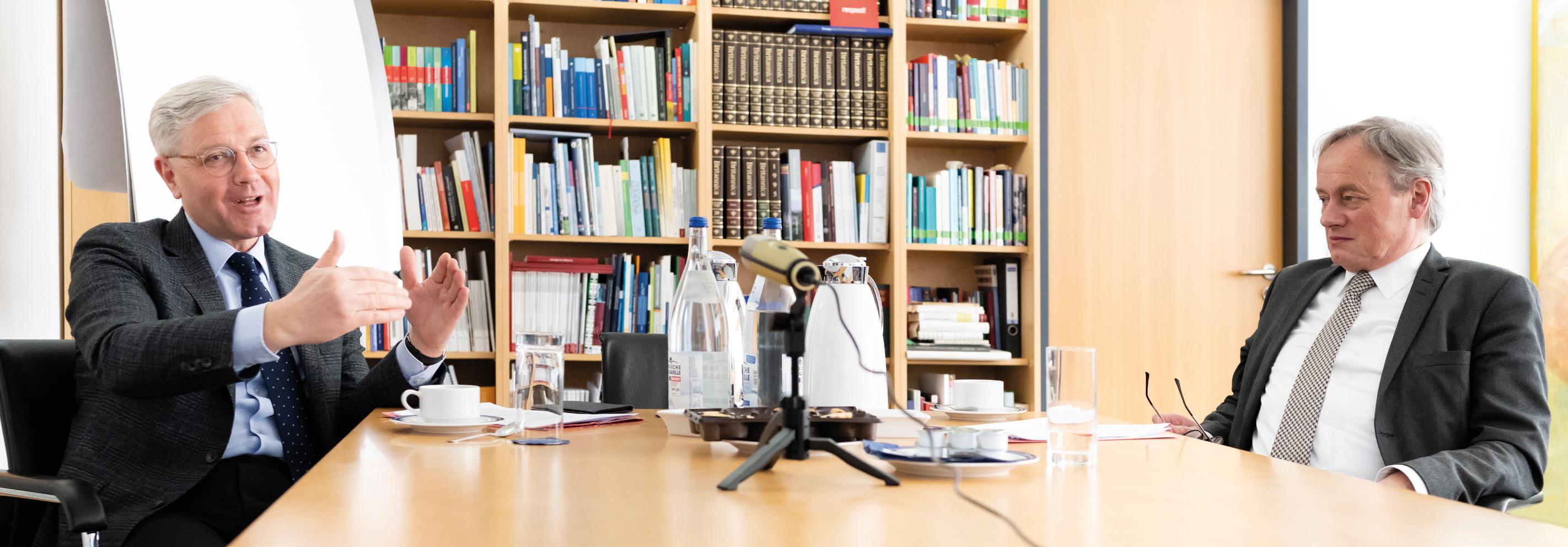
organisations, jobs. Society as we know it is, on the whole, a life-sustaining system and serves to protect us humans. Without institutions, without economy, without jobs, we could not survive. The health care system is only a part of this overall system. However, politics must have the holistic protection of life and its fundamental conditions in mind if it really wants to protect us. It is unethical not to consider all relevant aspects when making political decisions.
Röttgen: Of course, science is plural, diverse, contentious. Not recognising this is problematic. When weighing political decisions, it is important to create transparency and make conflicting aspects visible. This can only be achieved in a discourse in which everyone participates: scientists, the responsible politicians and the public. Maintaining this discourse in the course of the crisis is a very important stabilisation measure. Ɏ
What lessons should we learn from the current situation? Should the discourse be more institutionalised than it has been thus far?
Ihne: A wise person once said: “When you have an announcement, you have to find the place with the right acoustics”. In science we step out of the ivory tower, we can make an impact, but we have to choose the place with the right acoustics. What are these places where we want to diffuse knowledge – are they specialist conferences or talk shows? Is it parliament? As a scientist, I would like to see much more discursive parliaments. Scientists can get involved in a discursive, active parliament. That is where our present and future questions belong. Today, debates are usually feeble, already negotiated in committees, receive little public attention. Although we have many expert commissions, are they really heard? It is a question of finding a common language; that is extremely difficult.
Röttgen: I agree with you, Mr Ihne. Parliament must make its contribution to the discourse by holding debates there, the outcomes of which are not already clear from the outset but rather also determined in the course of the debate as argued. We parliamentarians can confidently make parliament a place of decision-making when it comes to fundamentally setting the course. I regard this as a very important reform.
But we are viewing the topic from different angles. It is also quite clear that science must become more political by assuming clearer responsibility for the impact of its findings. For this reason, it must come to terms with the particularities of politics and its slowness and recognise that politics is also about majority and power and that it is not a pure knowledge process.
Ɏ
How can this succeed?
Röttgen: Science requires a shift in consciousness. That depends on individuals, not on structures. Individuals who strive for more public impact for their cause and are not simply satisfied with discovering the truth.
In government, we need a kind of federal audit office for dangerous global developments. An independent institution that doesn‘t just indicate that the child has fallen into the well, but which instead draws attention to developments that may lead to the child falling into the well soon. It must be able to make itself heard institutionally. One might think that this is the responsibility of the ministries, but all of the experience in the past ten years has shown that the ministries cannot handle this task. No government foresaw the financial market crisis, the euro crisis, the refugee crisis or now the pandemic.
Ɏ
More public interference – how does this fit in with the self-imposed task and selfevaluation of science, Mr Ihne?
Ihne: Scientific success parameters are measured in publications and citations. A discussion with parliament or a newspaper interview does not count, even if we reach many millions of people in this way. Science wants to be neutral and methodologically clear. But that is not enough. We also have an obligation to society. Science is publicly funded and has the complexity decoding tools that enable us to make it possible to recognise connections. That literally calls for science to commit to taking on this social responsibility – as you have just said, Mr Röttgen – to redefine it.
We need to open up more. Just as parliament must reclaim its role and reconfigure itself in the 21 st century, so must science reconfigure its communication, and it must do so in a language that people understand. We cannot just leave that to journalists. We must ourselves clarify what the relevance of knowledge is.
Röttgen: So we can conclude that to the many potential opportunities offered by this crisis, we can add the social recognition of science.
This interview was held on 23 March 2020.
Norbert Röttgen
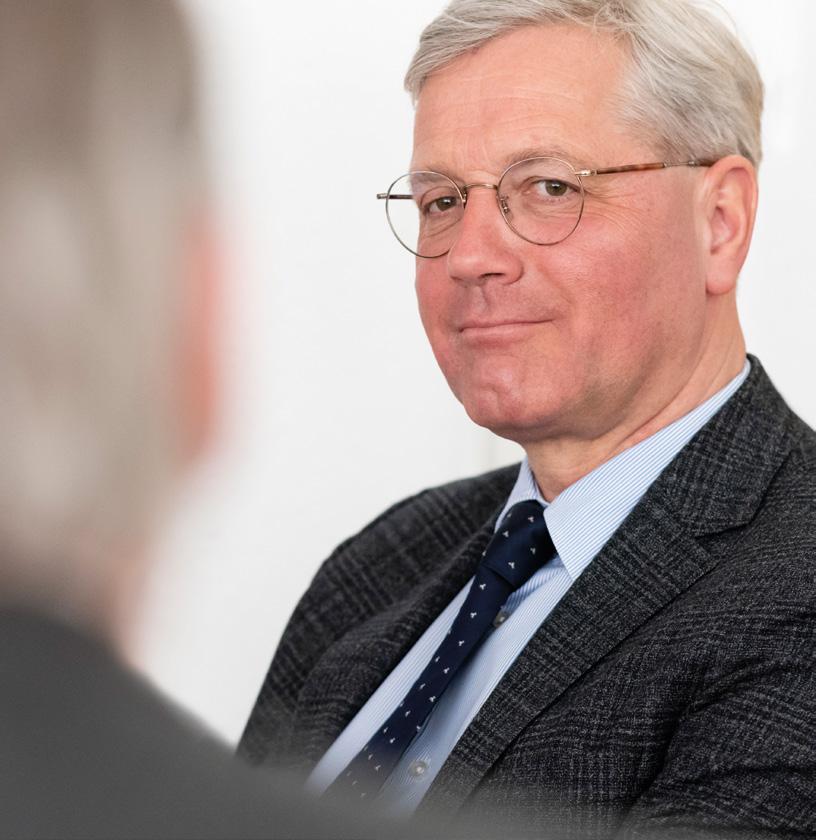
Since 2014, Norbert Röttgen has been Chair of the Foreign Affairs Committee of the German Bundestag, in which he has been a member since 1994. The now highly respected foreign policy expert was Federal Minister for the Environment, Nature Conservation and Nuclear Safety from 2009 to 2012. Röttgen is linked to Hochschule BonnRhein-Sieg – University of Applied Sciences through his constituency RheinSieg District II.
Against poverty and loneliness
With the Hennefer start-up Obstkäppchen e. V., alumnus Christopher Kossack and Carina Raddatz are combatting an acute problem – poverty in old age. Their project is being heard, even by the German chancellor.
It all started in the city centre of Cologne when Carina Raddatz watched a senior citizen collecting returnable deposit bottles. Moved and shaken by this image, she took a closer look at the issue of poverty in old age and found out that in Cologne alone, more than 14,000 elderly people are dependent on financial help from the state. The elderly affected often cannot enjoy a carefree life or a healthy diet.
She wanted to make a difference, overcome the problem. Together with school friend and entrepreneur Christopher Kossack, who studied management sciences at H-BRS, she considered what could be done. “I’ve always been a friend of starting something myself and taking things into my own hands”, Kossack says. So in the summer of 2017, the two of them founded the social start-up Obstkäppchen e. V. in Hennef. The idea was that volunteers would provide people affected by age-related poverty with bags full of fruit, vegetables and other healthy foods once or twice a month – free of charge and anonymously – to support them in enjoying a healthy and balanced diet. But the project also counteracts loneliness. “The senior citizens don’t just care about food. More than anything else, they’re seeking interpersonal contact”, says Kossack.
Award from Merkel
Thus far, the young company has been financed exclusively through donations and membership fees. The founders are also helped by the “Startsocial” initiative award, a nationwide competition for the promotion of social and voluntary commitment, which is under the patronage of German Chancellor Angela Merkel. “Out of 300 applicants, only seven were awarded the federal prize, including us”, reports Kossack. In June 2019, Merkel personally presented them with a cheque for 5,000 euros in Berlin.

Since then, the company has been attracting the interest of people from all over Germany and is currently in a phase of transition. Soon, a non-profit limited liability company (GmbH) is to be founded alongside the association in order to support senior citizens throughout Germany who are affected by age-related poverty.
We’re right at the forefront
E-learning is more important than ever due to the risk of infection with the coronavirus. Many universities now have to learn how to diffuse knowledge to their students via screen. H-BRS is making progress.
Lonely campus, empty lecture halls, seminars via video conference – the picture at German universities in 2020 is the same in many places. Now it is clear to everyone that e-learning and virtual teaching are central components of studies, especially in the time of corona. Marco Winzker, Professor of Digital Technology and member of the Board of Directors of the Centre for Teaching Development and Innovation (ZIEL), has been working on the opportunities and advantages inherent in e-learning for seven years. “The topic developed slowly overall, but currently we’re experiencing an incredible surge.”
For Hochschule Bonn-Rhein-Sieg, online teaching is not new territory. In fact, the university’s many years of work have made it a pioneer in this field. “We have a very good basic infrastructure for e-learning and can advise other universities with our knowledge. We’re right at the forefront”, says Winzker. H-BRS is the national leader, especially in the area of remote (online) laboratories. Not all German universities have reached this stage yet – many lecturers still have to overcome the digitalisation barrier and learn how to diffuse knowledge to students via electronic courses. But the mutual support among the universities is great. “The Hochschulforum Digitalisierung (HFD) offers a lot of information and networking, including a contact point for those who need to catch up”, reports Winzker.
There will be a digitalisation surge
How teaching in higher education will change once normality is restored at some point is a matter of concern to many. Winzker prophesies: “There will be a digitalisation surge, a knowledge surge and a renewal surge, the whole situation provides a lot of impulses. But it remains to be seen whether in the end there will be a rapid and sustainable change in trend or whether e-learning will be cut back sharply again.”
A task for science communication
Many people regard artificial intelligence with great scepticism. What triggers reservations and fears, and how can science get through to people? Oliver Ruf, Professor of Communication Science and Media Practice, answers.
Why does the topic of artificial intelligence draw scepticism?
The relationship between human and machine plays a major role. Ever since technologies suspected of taking over tasks intrinsically ascribed to humans have existed, there has been a fear of losing something and the feeling of an existential threat. The image we have of artificial intelligence in society today is interculturally differentiated. Behind it, however, there is usually a certain phantasm of machines as is presented to us by cinematic fiction in particular. This means that our image of AI is still shaped by fiction and media. And we always have the fear that at any moment a kind of terminator could come through the door who wants to kill all people and has no interest in humanity, but instead follows its own will to exist. This idea is still present in many minds, although it is incredibly far away from the possibilities of artificial intelligence. But because such a representation works, especially in cinematic narration, we have the impression that it might be possible after all – a feeling of uncanniness remains. Ɏ
How can science contribute to overcoming such barriers?
We urgently need science communication that, on the one hand, understands what is being done technically and technologically and, on the other hand, is able to communicate these topics to a broad public in an understandable way so that reservations, fears and imaginings can be reduced or mitigated. This communication must be able to visualise, verbalise, realistically represent and comprehend AI without neglecting critical reflection. I’m convinced that this cannot be the task of the disciplines that develop these technologies. Rather, we need a separate discipline for it – in any case, media cultural studies, in the best case, philosophy.
Create clarity
To stop climate change, innovative and sustainable technologies must penetrate the markets. What are the challenges?
Sustainable, innovative technology is becoming increasingly important in view of climate change. And demand is growing for technologies – for environmentally-friendly power generation, for hybrid and electric cars for more climate-friendly mobility, and for smart home systems for saving energy in your own four walls. The challenge here is to ensure that new technologies do not have a negative impact on the environment and society as a whole.
“Researchers and developers must be aware of the effects in their entirety”, says Stefanie Meilinger, Professor of Sustainable Technologies. It is not enough to focus on a single environmental impact. “Take ‘Dieselgate’, for instance. People had focused strongly on the CO2 problem. At times, however, nitrogen emissions were completely neglected”, she criticises. She says it is important to raise awareness of the overall context. That is why Meilinger and her colleagues always make sure that they raise students‘ awareness of the interactions between technological, ecological and social change, rather than just imparting technical know-how.
Broaden the view

Excessive costs in the development of sustainable technology are often cited as the first and greatest obstacle. “However, many other factors besides cost play a role in the success of technical innovations, such as political institutions like the EU”, says Meilinger. “They set the framework.“ Acceptance issues would also have to be considered by engineers and manufacturers. What is the attitude of a society and what influences it? What are successful innovation paths?
The most important thing: “Broaden the view to include all factors that could be responsible for whether a technology pathway becomes mainstream”.
45
It’s what we do together that counts
Life at our university has many facets. Students come for a few semesters, acquire new knowledge, graduate – and leave the university again. Professors and (guest) scientists teach and research – sometimes only for a short time, often for many years. Employees in the administration, library, central facilities and institutes contribute to a lively university through very different tasks.
Not all of this is equally visible, and yet all actors and activities are part of a prosperous, varied and harmonious life at the university.
Visible in 2019 were the additional seminar rooms at Sankt Augustin and Rheinbach, the launch of the Innovation Campus Bonn, the project “Healthy University” with its diverse activities, the Study Information Days, the summer festival and the Christmas campus, the activities of the student initiative “Green Campus”, events of the Children‘s University, the Company Day, the graduation party and the scholarship celebration – to name just a few highlights. More in the background, but no less important, is the daily business. In numerous discussions, the aim is to be heard, overcome barriers and, in the end, create clarity about which new topics are developing, legitimate interests being taken into account and projects being initiated or implemented. Examples include the many measures taken towards digitalisation, e.g. the various administrative processes and teaching, the appointment of numerous professors and honorary professors, the establishment of an occupational safety, health and environmental protection management system, the semester discussions with students, the deliberations and resolutions of the committees.
Sustainability continues to be a defining element in all areas. In 2019, for instance, we switched over our energy supply to 100% green electricity, thereby saving around 26.3 tonnes of CO2. In addition, the university was awarded the title of FairTrade University.
However, there is no doubt that there is still much that could be optimised to make life at the university even better. It‘s what we do together that counts!
Angela Fischer
Chancellor


